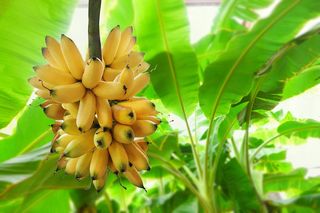 Bad news for banana lovers: A fungus that's particularly adept at killing the fruit has finally reached Latin America — a major supplier of the world's bananas — as scientists long feared it would.
Bad news for banana lovers: A fungus that's particularly adept at killing the fruit has finally reached Latin America — a major supplier of the world's bananas — as scientists long feared it would.Recently, officials in Colombia declared a national emergency after confirming the presence of this deadly fungus, known as Fusarium oxysporum Tropical Race 4 (TR4), in the country, according to the Colombian Agricultural Institute (ICA).
This is the first time the fungus has been detected in Latin America. However, the fungus isn't new — for decades, it has been devastating banana plantations in Asia, Australia and East Africa.
Although this fungus isn't harmful to humans, it is a "serious threat" to banana production, according to the United Nations. The fungus attacks the plant's roots and blocks its vascular system — the network used to transport water and nutrients — and ultimately kills the plant. Once the fungus finds its way into soil, it can't be treated with fungicides, and it's very difficult to remove.
What's more, the fungus attacks the most commonly exported banana, the Cavendish banana. "For Western countries, the vast majority of the bananas we eat are from the same Cavendish subgroup," Nicolas Roux, a senior scientist at Bioversity International in France, told Live Science in a June interview.
Cavendish bananas reproduce asexually, meaning that the plants are essentially clones of their parents. This means banana crops lack genetic diversity, and infections can spread quickly.
"What we're having is an almost apocalyptic scenario where we'll probably lose Cavendish [banana]" Sarah Gurr, Exeter University’s chair in food security, told Wired.
Officials reported that the TR4 fungus was found in a 175-hectare area in the La Guajira region of northern Colombia. The country has quarantined and destroyed affected areas in an effort to fight the fungus.
A number of ideas have been proposed to help save the Cavendish banana, including genetically engineering plants that are resistant to TR4.









No comments:
Post a Comment